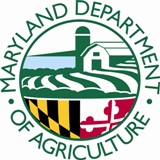(The following is a reprint from the May print edition of The Equiery.)
It has been a scary spring for Maryland horse people…
First there was concern after a Pennsylvania horse, which had shown in Maryland on March 15, tested positive for equine herpes virus (EHV). However, the Pennsylvania horse did not exhibit symptoms until March 22, well after it had left Maryland.
None of the horses at the show (nor any of the horses from the Pennsylvania farm) exhibited any signs of illness. The Maryland Department of Agriculture advised the owners of horses who had shown to monitor their horses through April 5 (which allowed for the 21-day incubation period of the virus). A Maryland horse from the show was reported to the Maryland Department of Agriculture due to a fever on March 29, but that horse also tested negative for EHV.
The incubation period passed, and just as everyone gave a sigh of relief came the news that Mezza Luna in Montgomery County had a horse positive for EHV-1. As Keith Harpster, owner of Mezza Luna, explained to The Equiery: “I brought our mare Cali, and her foal Lilli, home on the afternoon of Monday, April 13, around 6 p.m. When we checked on her around 8 p.m., she looked great! But by 7:30 the next morning, she was acting neurological, and we immediately called our vet.”
Keith went on to give high praise to Dr. Pete Radue of Damascus Equine Associates, and explained that by 10 a.m. that morning he (Keith) was rushing blood samples and mucus swabs up to the Maryland State veterinary diagnostic laboratory in Frederick, which boasts a state-of-the-art PCR machine. Of course, they also immediately isolated the mare and her foal. The lab results were ready at 2 p.m.: the tests were positive for a mutant neurotropic form of Equine Herpes Virus (EHV-1).
Keith and his wife Kim immediately and fully cooperated with the Maryland Department of Agriculture’s request for a 28-day investigational hold order, instituting all appropriate biosecurity measures. Other than necessary professional care, only Keith Harpster had access to the Cali and Lilli. All others were kept a minimum of 100 yards from the mare and foal. All traffic and delivery to the farm has been halted, except for appropriate health care personnel and the owners of the horses. The vets of all the privately owned horses are working in cooperation with DEA. All horses on the farm are being tested in addition to being monitored for symptoms, including having their temperatures taken twice daily and recorded for MDA. “The Harpsters were very responsible,” noted Dr. Radue to The Equiery. “They handled all the biosecurity procedures exactly as they should and went beyond. They complied with all the requested and recommended measures.”
Because the mare had spent the prior two weeks at a Maryland breeding facility, MDA immediately instituted a trace-back (officially known as a Disease Investigation Protocol) to the breeding facility. Although no horses at that breeding facility exhibited symptoms, testing did indicate that another horse was test positive for EHV-1. On Friday, April 17, MDA issued a press release with the following update: “All horses that were exposed to the two positive horses are currently free of symptoms and are being monitored daily. All appear healthy. Both farms will remain under quarantine to ensure the virus is contained.”
On Monday, April 20, 2015, Northview Stallion Station in Cecil County issued the following statement: “We are happy to report that the MDA has cleared us to resume breeding mares and receiving boarders” (effective Monday, April 20). Dave Wade, general manager of Northview, clarified the situation for The Equiery: “The horse in question only came in contact with six other mares in an area that is isolated from the rest of the population. Those six mares are being monitored during the 21-day incubation period and so far are symptom free. It is important to note that no horse displayed any symptoms of EHV-1 on our farm, as confirmed by MDA. Because of the geographic isolation of the mares in question from the rest of the population, MDA has cleared us for business as usual.”
On Thursday, April 23, Keith Harpster told The Equiery, “We are pleased to report not only has Cali’s health improved, but we have cleared the critical incubation period of the virus. Nevertheless, we will continue with all isolation and biosecurity procedures for the duration of the hold order, and beyond if deemed prudent by our health care advisors.”










